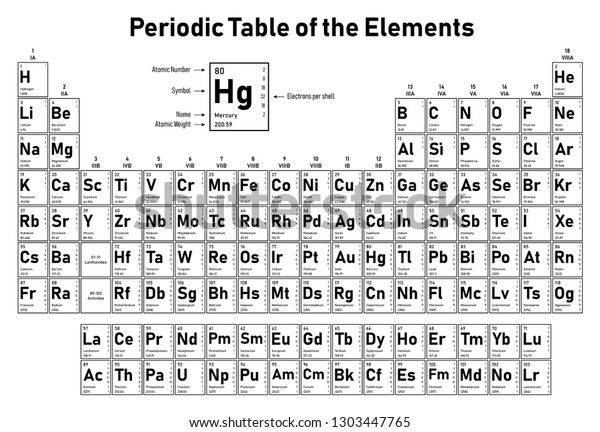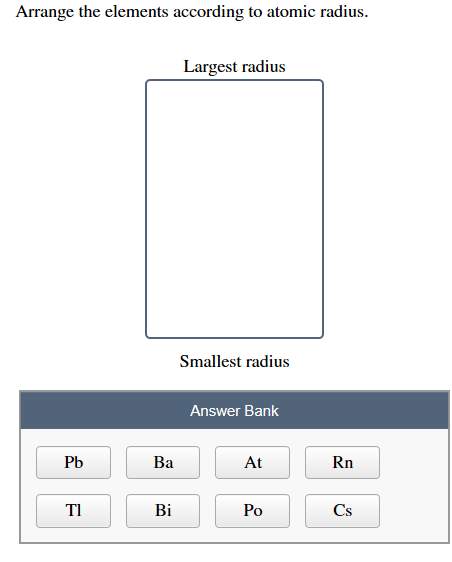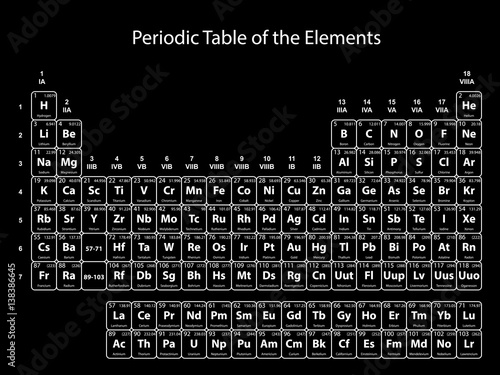Ba Atomic Number
Barium
The picture above shows the result of adding different metal salts to a burning reaction mixture of potassium chlorate and sucrose. The red color originates from strontium sulfate. The orange/yellow color originates from sodium chloride. The green color originates from barium chlorate. The blue color originates from copper (I) chloride. The lilac color that should be evident from the potassium chlorate is washed out by the other colors, all of which are more intense.
Description
History
Density
Melting Point
Boiling Point
The number of electrons in each of Barium's shells is 2, 8, 18, 18, 8, 2 and its electron configuration is Xe 6s 2. Barium is a member of the alkaline-earth metals. The barium atom has a radius of 222.pm and its Van der Waals radius is 268.pm. Atomic Number: 56: Symbol: Ba: Element Category: Alkaline Earth Metal: Phase at STP: Solid: Atomic Mass amu 137.327: Density at STP: 3.51 g/cm3.
56 Ba Barium 137.327. Atomic Number: 56. Atomic Weight: 137.327. Melting Point: 1000 K (727°C or 1341°F) Boiling Point: 2170 K (1897°C or 3447°F). Barium (atomic number 56, symbol Ba) is a chemical element and an alkaline earth metal with a soft silvery color. Because of its reactivity with air, this metallic metal is not observed in its pure form in nature. Barium is found in naturally occurring minerals. Symbol: Ba Atomic Number: 56 Atomic Mass: 137.327 amu Melting Point: 725.0 °C (998.15 K, 1337.0 °F) Boiling Point: 1140.0 °C (1413.15 K, 2084.0 °F) Number of Protons/Electrons: 56 Number of Neutrons: 81 Classification: Alkaline Earth Crystal Structure: Cubic Density @ 293 K.
Electronegativity
Ground State Electron Configuration
Common Oxidation States
Crystal Structure
Naturally Occurring Isotopes
Medical
Industrial

Miscellaneous
Source
Price Per Gram

(Dr. Bean)
Background
Description:
Name: Barium
Symbol: Ba
Atomic Number: 56
Atomic Mass: 137.327 amu
Atomic Structure:
|
History:
Date of Discovery: 1808
Discoverer:Sir Humphrey Davy
Name Origin: From the Greek word barys (heavy)
Physical Properties
Barium is a metallic element, soft, and when pure is silvery white like lead. The metal oxidizes very easily and it reacts with water or alcohol. Barium is one of the alkaline-earth metals.
Standard State: solid at 298 K
Color: silvery white
Density @ 293 K: 3.51 g/cm3
Melting Point: 725.0 °C (998.15 °K, 1337.0 °F)

Boiling Point: 1140.0 °C (1413.15 °K, 2084.0 °F)
Electronic Properties
Download free powerpoint viewer for mac. Electronegativity: .89 (Pauling)
Ground State Electron Configuration:
- Ground State Electron Configuration: [Xe].6s2
- Shell Structure: 2.8.18.18.8.2
Barium Compounds

Common Oxidation State: +2
Fluorides |
|
Chlorides |
|
Bromides |
|
Iodides |
|
Hydrides |
|
Oxides |
|
Sulfides |
|
Selenides |
|
Tellurides |
|
Nitrides |
|
Crystallography
Crystal Structure: body-centered cubic
Nuclear Properties
Naturally Occurring Isotopes:
Isotope | Atomic mass (ma/u) | Natural abundance (atom %) | Nuclear spin (I) | Magnetic moment (m/mN) |
130Ba | 129.906282 (8) | 0.106 (1) | 0 | |
132Ba | 131.905042 (9) | 0.101 (1) | 0 | |
134Ba | 133.904486 (7) | 2.417 (18) | 0 | |
135Ba | 134.905665 (7) | 6.592 (12) | 3/2 | 0.837943 |
136Ba | 135.904553 (7) | 7.854 (24) | 0 | |
137Ba | 136.905812 (6) | 11.232 (24) | 3/2 | 0.937365 |
138Ba | 137.905232 (6) | 71.698 (42) | 0 |
Half-life of Isotopes:
Isotope | Half Life |
Ba-130 | Stable |
Ba-131 | 11.7 days |
Ba-132 | Stable |
Ba-133 | 10.5 years |
Ba-133m | 1.6 days |
Ba-134 | Stable |
Ba-135 | Stable |
Ba-135m | 1.2 days |
Ba-136 | Stable |
Ba-137 | Stable |
Ba-137m | 2.6 minutes |
Ba-138 | Stable |
Uses
I. Medical Applications:X-Ray Diagnostic Work
Example: Barium Enema
The test is used to detect colon cancer. The barium enema may also be used to diagnose and evaluate the extent of inflammatory bowel diseases.
This test may be done in an office or a hospital radiology department. You lie on the X-ray table and a preliminary X-ray is taken. You are asked to lie on the side while a well lubricated enema tube is inserted gently into your rectum. The barium, a radiopaque (shows up on X-ray) contrast medium, is then allowed to flow into the colon. A small balloon at the tip of the enema tube may be inflated to help keep the barium inside. The flow of the barium is monitored by the health care provider on an X-ray fluoroscope screen (like a TV monitor). A barium enema, or lower gastrointestinal (GI) series, uses x-rays to diagnose problems in the large intestine, which includes the colon and rectum. The lower GI series may show problems like abnormal growths, ulcers, polyps, and diverticuli.
II. Industrial Applications:
a. Glass Making
b. Barite is extensively used as a weighting agent in oil well drilling fluids.
c. Barite is also used in making rubber
III. Miscellaneous:
a. The carbonate is a rat poison
b. The nitrate and chlorate give green colors in pyrotechnics
Barium salts impart green colors to flames. The picture above shows the color arising from adding barium chlorate (BaClO3) to a burning mixture.
Purchasing Information

Source:
Barium metal is available commercially and there is normally no need to make it in the laboratory. Commercially, it is made on small scale by the electrolysis of molten barium chloride, BaCl2.
cathode: Ba2+(l) + 2e- Ba anode: Cl-(l) 1/2Cl2 (g) + e-
Barium metal can also be islated from the reduction of barium oxide, BaO, with aluminium.
6BaO + 2Al 3Ba + Ba3Al2O6Price Per Gram: $17.18 (Aldrich Chemicals packages barium under argon in ampules)
I just love chemistry!!!
What Is Ba Atomic Number
How many protons and neutrons are there in this nucleus#: ^137Ba#?
1 Answer
This nucleus has
Explanation:
Two numbers are used to identify a nucleus:
Atomic number -- number of just protons in the nucleus. The atomic number determines what an element is chemically, for the number of protons determines the number of electrons needed to balance the charges in an atom, which in turn determines the electron configuration the atom will adopt.
Mass number is the number of protons plus neutrons. This is roughly proportional to the total mass of the atom. Mass number is also a key property of atoms because we need to know the masses of atoms to understand how a given amount of material we weigh out will react -- for instance, how much carbon dioxide gas can we get out of 10 grams of calcium carbonate and how much hydrochloric acid do we need to get all the gas? We can write a balanced equation
Ba Atomic Mass
That's why chemists commonly identify an isotope with the element, which implies its atomic number, and then the mass number.
When the element is barium, that means the aomic number is
Related questions
